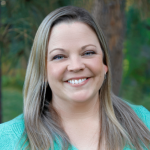When an individual struggles with certain symptoms that may or may not be diagnosed, they might look for ways to control those symptoms or feel them less intensely, and this can lead to drugs and alcohol. If you are struggling with symptoms of a mental health disorder, it’s not uncommon to develop an addiction. Sometimes, this happens in the other direction, where addiction changes the brain and leads to a subsequent mental health disorder like depression or anxiety. Thankfully, you can find treatment through what is called a dual diagnosis program.
Dual Diagnosis Treatment at Sequoia Recovery Center
What is the best treatment for dual diagnosis? Dual diagnosis is when you receive treatment at the same time, from the same facility, for a mental health disorder and an addiction.
This type of treatment is generally catered to the individual and includes a combination of therapy and medication fit for the type of substances to which one is addicted, as well as the types of mental health disorders with which one is diagnosed.
Some of the most common combinations include:
- Depression and alcohol addiction
- Anxiety and benzodiazepine addiction or Xanax addiction
- PTSD and benzodiazepine or alcohol addiction
- Bipolar disorder and cocaine addiction, stimulant addiction, or alcohol addiction
No matter the combination with which you are struggling, the best treatment for dual diagnosis is one that includes the right combination of therapy and medication.
What is the Best Treatment for Dual Diagnosis?
So, what is the best treatment for dual diagnosis? The specific types of therapies and medications are based on the conditions that are being treated, but in general, psychotherapy and medication can be used to help a client gain control over symptoms of a mental health disorder while also learning how to overcome addiction and practice coping skills for co-occurring disorders.
Detox
You will start with detox. If you are receiving treatment for a dual diagnosis condition, detox is an essential step, and it helps you to remove any remaining toxins from your body so that you can get through your withdrawal symptoms and start the next part of your treatment plan cleanly.
Therapy
From there, therapy will start to be incorporated into your routine. The frequency of your therapy will depend heavily on the type of program you pick, whether you choose an inpatient program or an outpatient program. However in almost all cases you can expect a combination of weekly individual therapy and daily group therapy of different varieties. When you reach out for consultations, you will receive personalized recommendations as to the best psychotherapy for your condition.
Medication
Medication is likely going to be a part of your treatment plan, particularly to help you get through some of the preliminary symptoms of your mental health disorder, as well as aiding in your successful recovery from things like alcohol or opioids. The medication you are prescribed for something like a depressive disorder or a personality disorder will be monitored to review the efficacy and determine whether changes might need to be made, whether you prefer a different medication, or whether you prefer to wean yourself from an existing medication.
Contact Sequoia Recovery Centers
When you contact our team to learn more about our substance abuse programs, you will have the opportunity to review the different therapies and medications that we suggest based on your circumstances. We will work hard to provide customized treatment that includes the most appropriate level of care.
You have control over whether you prefer an inpatient or an outpatient program, living full-time at our facility or not, and we can help you find solutions to underlying mental health disorders that you prefer, such as temporary use of things like antidepressants or avoiding medications that may not have worked for you in the past.
What is the best treatment for dual diagnosis? Starting with detox, you’ll be able to transition into a level of care that is most appropriate with a combination of therapy and medication suited to your needs.
Don’t wait to get help. Call or email us today at help@sequoiadetoxcenters.com or 1-866-824-0709 to learn more.

